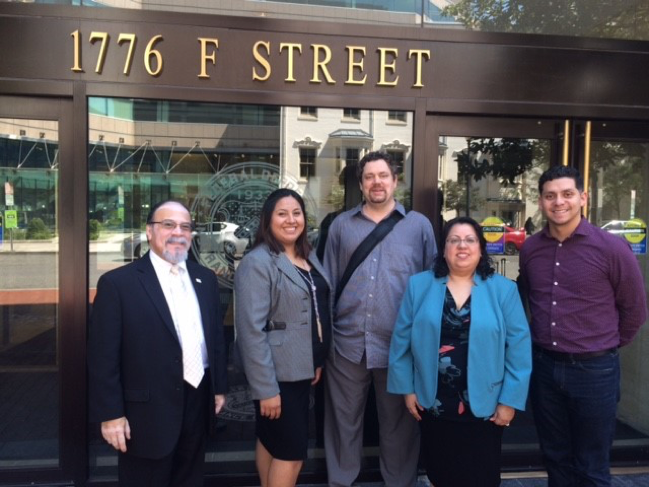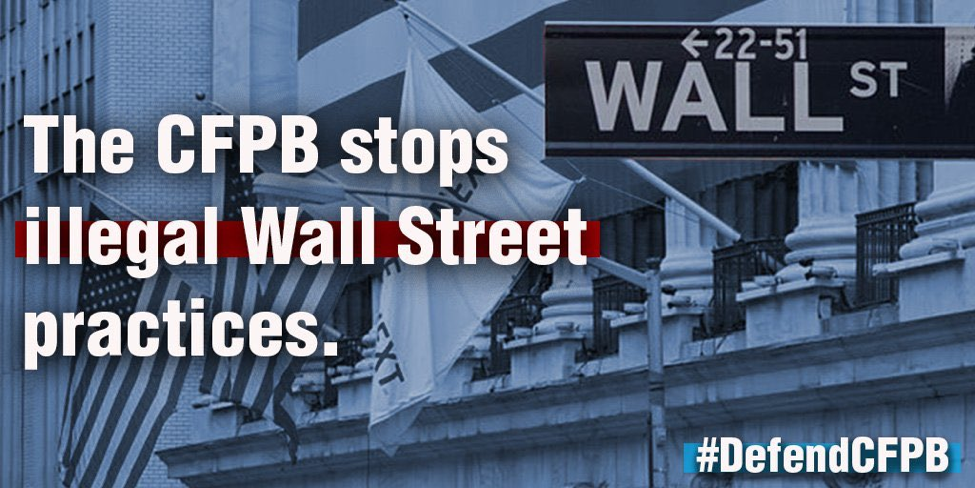Trump’s First 100 Days: Weakening Consumer Protections for Student Loan Borrowers
By Amelia Collins, Policy Analyst, NCLR

The president proposed an ambitious student debt plan during the campaign last year. He called student loan debt an “albatross” hanging on the necks of borrowers, proposed a generous and streamlined repayment plan, and stated that the government shouldn’t “profit” off its student loan program. However, instead of using the first 100 days of his presidency to follow through on these promises, President Trump and Secretary of Education Betsy DeVos have rolled back crucial consumer protections for our nation’s 40 million student loan borrowers.
Let’s set the stage.
The Consumer Financial Protection Bureau (CFPB) has the authority to oversee consumer financial products and services under the Dodd-Frank Act. Over the past few years, it has brought lawsuits and enforcement actions against a host of financial institutions and actors, including student loan servicers.

Most recently, the CFPB took action against the nation’s largest servicer, Navient. In January, the CFPB sued them for failing borrowers at every stage of repayment, most egregiously by steering borrowers into expensive forbearance rather than helping them enroll in an income-driven repayment plan. In an effort to dismiss the suit, Navient said that they shouldn’t be expected and are not required to act in the interest of the consumer. Rather, their main priority is to squeeze payments out of borrowers.
The Department of Education’s reaction to Navient’s abdication of their responsibilities to student loan borrowers? Rewarding the company with a rollback of guidance meant to protect borrowers and improve servicing. Last week, Secretary DeVos rescinded three Obama-era memos that sought to revamp the student loan servicing market, including an effort to ensure servicers which are granted contracts in the future are assessed on their loan servicing track record. Yet who is in the running to continue servicing the government’s student loan portfolio once current contracts expire in 2019? You guessed it, Navient. Under the now-rescinded memos, Navient’s history of failing borrowers would have been a factor in determining the success of their bid.
Now, it isn’t. In fact, Navient could even increase their grip on the student loan servicing market.
The administration’s first 100 days have included further rollbacks to common sense protections for borrowers as well as rollbacks on guardrails that were meant to improve the student loan servicing market. Secretary DeVos has reopened the door to four debt collection companies fired by the Obama administration for misleading federal student loan borrowers. And she has voided guidance to prohibit student loan guaranty agencies from charging huge fees to defaulted borrowers who quickly resume paying.

What can be done? Well, thankfully the CFPB is an independent watchdog that is continuing long-overdue efforts to bring transparency and accountability to the student loan servicing market. On Monday, NCLR submitted comments to the CFPB, supporting its proposal to collect crucial servicing and repayment information on borrowers and associated outcomes. The CFPB will also continue ensuring servicers are abiding by protections outlined in Dodd-Frank, and that they are addressing borrowers’ concerns in an open, timely manner. State attorneys general can also do more to protect borrowers: NCLR recently joined a letter with the American Federation of Teachers, NAACP, and others urging them to use their authority to curb servicing abuses.
Student borrowers have a right to switch repayment plans to manage their debt burden, and student loan servicers must ensure their practices are helping and not harming these already financially strained consumers.


